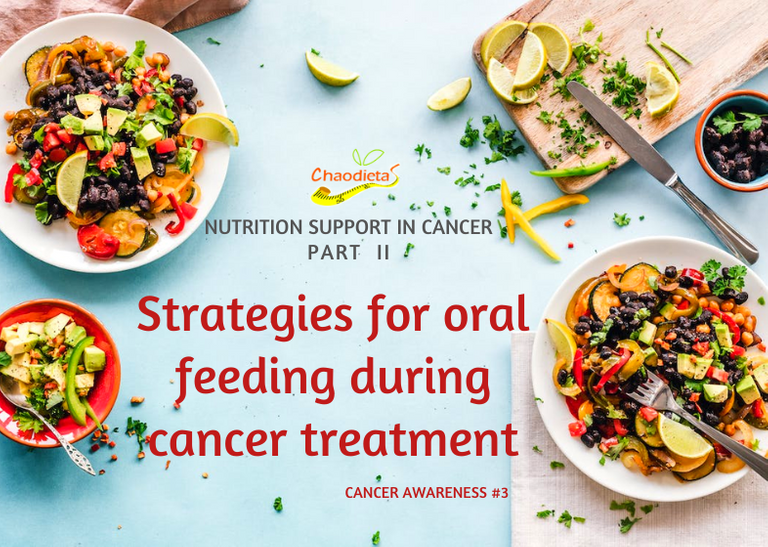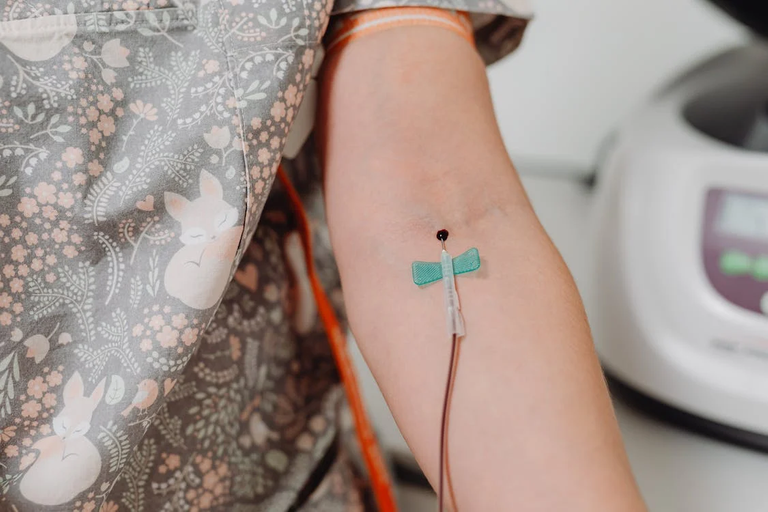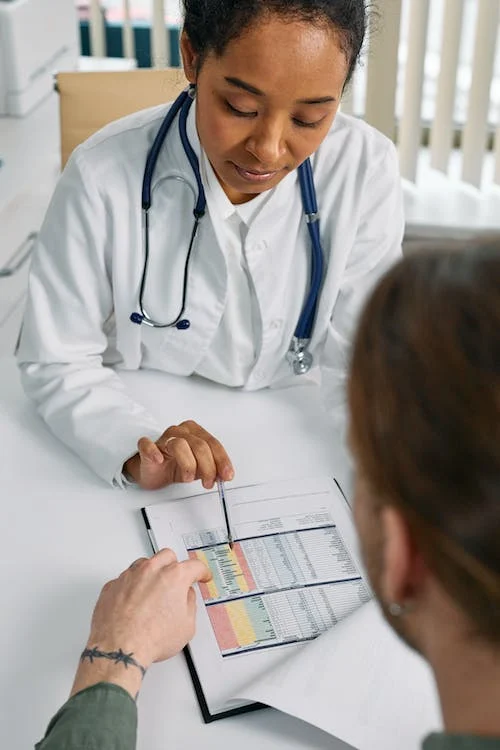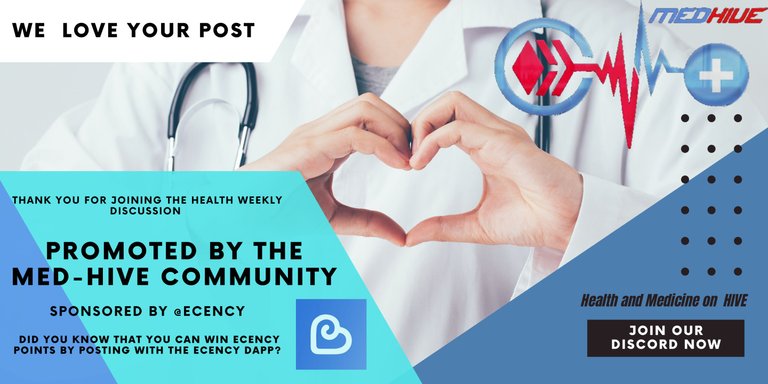A few days ago, I shared a post talking about the importance of maintaining an adequate nutritional status in cancer patients, an indispensable condition to be able to complete chemotherapy or radiotherapy treatments. Today, I want to delve a little deeper into the qualitative strategies to achieve oral intake in these patients despite the adverse effects of treatments on food consumption.


Optimal nutritional status is defined as a set of assessments that predict that a patient's immune system is prepared to fight a nosology. The basic aspect to take into account is a healthy weight whose BMI is between 18.5 kg/m2 to 24.9 kg/m2. However, it is essential to take anthropometric measurements to determine muscle mass, and fat mass and even to determine the degree of hydration. It is fundamental since chemotherapy doses are calculated according to the patient's weight. If the patient's weight changes by 10% (under or over) this will affect the protocol previously established with the oncologist (1).

Another factor that affects the patient's nutritional status is the quantity and quality of food intake. It should be remembered that oncological treatments cause toxicity (to a greater or lesser degree) in some tissues as mucous membranes, blood cells, hepatocytes, to mention a few. This toxicity can generate changes in food intake, malabsorption of nutrients and sarcopenia (1). If we add to all this a depressive condition of the patient, oral food intake is greatly compromised increasing the mortality rate.
It is important to inform the patient and his/her caregivers from the beginning of the oncologic treatment about the possible symptoms that will affect his/her diet in order to anticipate and establish nutritional strategies. It is also essential to clarify to the patient that these strategies will be variable over time as they will depend on the patient's response and adaptation. This will avoid feelings of frustration as a strategy may be useful at the beginning of cancer treatment but may lose effectiveness over time.

This is the question always asked by patients and caregivers. It is a real concern for many of them. To answer this question it is vital to remind both the patient and their caregivers that appetite is variable, not because they have cancer, but because appetite is influenced by individual physiological needs, emotional aspects and the social environment. It is necessary to understand that this occurs even when we are healthy. Therefore, the first thing the patient should know is that he/she should take advantage of the moments of appetite to feed him/herself adequately without the risk of malnutrition, but neither should he/she visit extremes such as obesity.
Regardless of where the cancer cells are lodged (in a defined tumor or disseminated in various organs) the therapeutic conduct to follow in the patient can be with chemotherapy or radiotherapy, which can cause secondary symptoms in the eater that affect their diet and therefore, their nutritional status (here I exclude surgery). Some of these side effects can be nausea, vomiting, dysgeusia, xerostomia, anorexia, mucositis, dysphagia, diarrhea, constipation (2).

Here are some strategies for the patient undergoing oncologic treatment to maintain oral intake despite symptoms that limit feeding.
| Symptom / Sign | Advisable | Not advisable |
|---|---|---|
| Fractionate feeding in small intakes. | ||
| Use textures that do not require a lot of chewing (crushed, semi-liquid, liquid). | ||
| Nausea/ Vomiting | Use easily digestible foods represented in simple preparations, low fat, and mild flavors. | Don't give different textures in the same meal. |
| Continually rehydrate with preparations such as broths, fruit juices, sweetened drinks, oral rehydration serum, and liquid jellies. | Don't serve food too cold or too hot. | |
| Give food at room temperature or lukewarm. | ||
| Frequent but low volume intakes. | Don't give low-calorie foods | |
| Anorexia | Provide preparations with high caloric density (*). | Don't provide a monotonous diet or dry food. |
| Take advantage of moments of hunger by giving attractive and varied preparations. | Don't abuse fats, | |
| Easy to chew preparations (crushed, semi-liquid, liquid). | Avoid drinking liquids before eating. | |
| Supplementation | ||
| Dysphagia | Use preparations with easy-to-swallow textures (crushed, semi-liquid, liquid). | Don't give very fibrous meats. |
| Soften the texture of foods with jellies, sauces, or unctuous ingredients. | Don't drink and eat at the same time. | |
| Provide food in liquid or semi-liquid form (wet preparations). | Don't give acidic and irritant (pepper, mustard, chili)foods. | |
| Mucositis | Provide supplementation. | Don't give foods that adhere to the mucous membranes (grits, potatoes). |
| Give non-citrus fruit juices in ice cubes. | Don't give foods that break the mucous membranes (toasted bread, cereal). | |
| Don't give milk. | ||
| Provide foods that provide pectin (fruits such as apples and green bananas). | ||
| Diarrhea | The fruit and vegetables should be cooked, not raw. | Don't give fatty foods such as nuts, yellow or ripened cheeses, mayonnaise, egg yolk, butter, or margarine. |
| Give yogurt. It helps to recover the intestinal villi. | Avoid dairy products such as fresh cheese and whole milk. | |
| Constantly provide fluids to improve stool consistency. | ||
| Constipation | Provide foods rich in fiber as fruits, vegetables, cereals, and whole-grain bread. | Do not give food such as tea, cinnamon, wine, rice, or green banana. |
| Give wet preparations. Use vegetable fats in moderation. |
I must emphasize that each patient should be assessed individually and not take as standard the general recommendations. In the case of supplementation with existing products on the market rich in carbohydrates, proteins (amino acids), vitamins, and minerals, it must be indicated by a health professional and never self-medicated by the patient or his family members. For these cases, there are highly qualified health professionals to provide the best advice from your oncologist to your nutritionist.

Source

References:
(1) Strategies to Mitigate Chemotherapy and Radiation Toxicities That Affect Eating
(2) La nutrición en el tratamiento del cáncer (PDQ®)–Versión para pacientes
No appetite? How to get nutrition during cancer treatment





